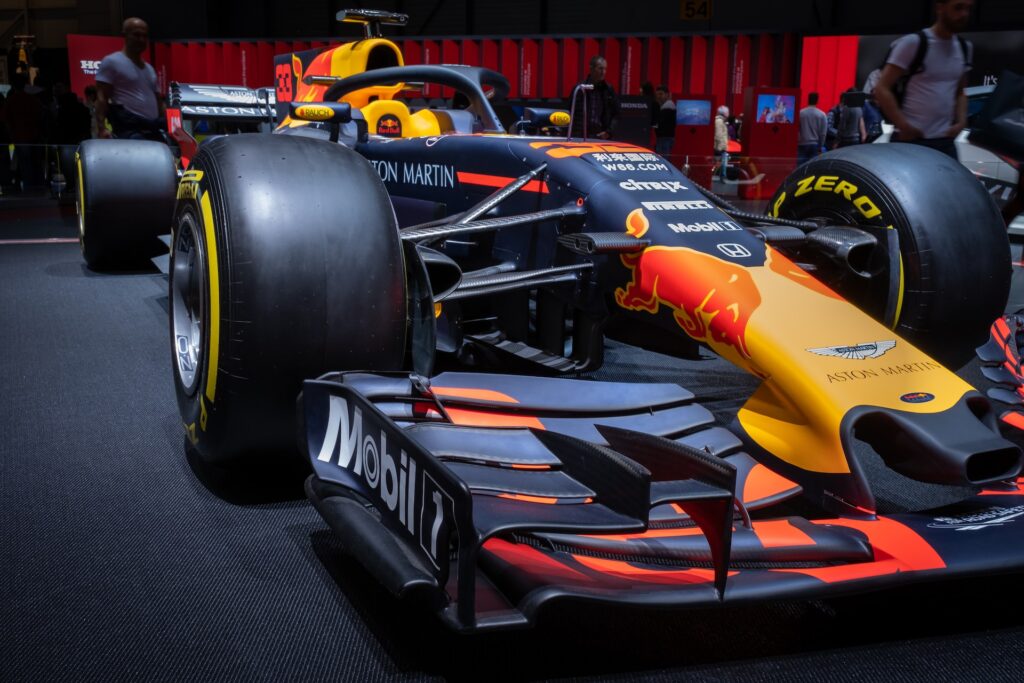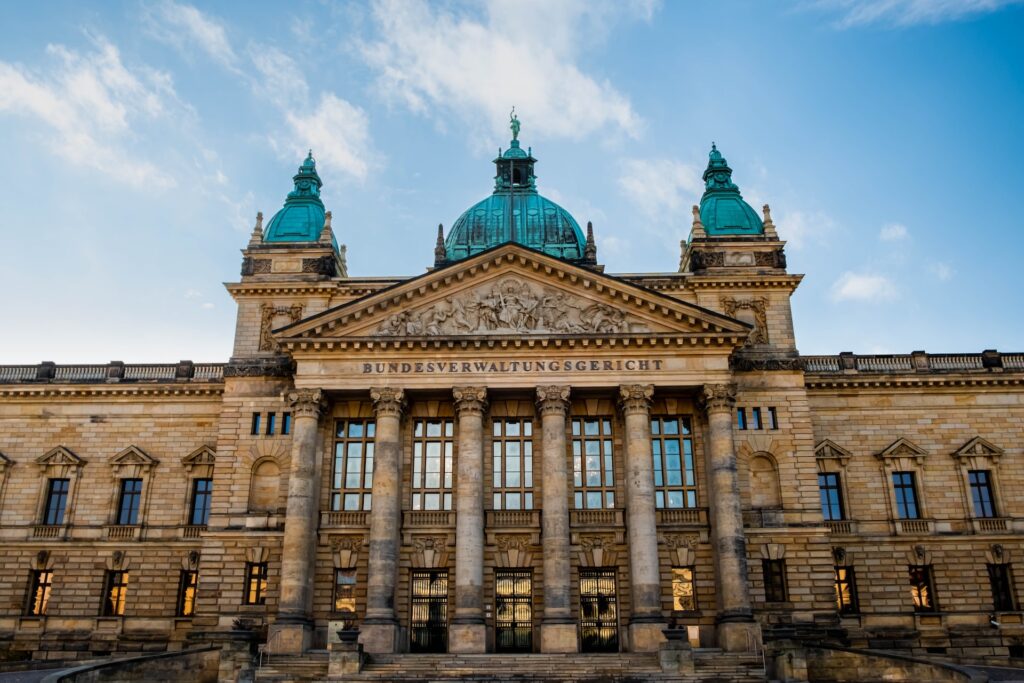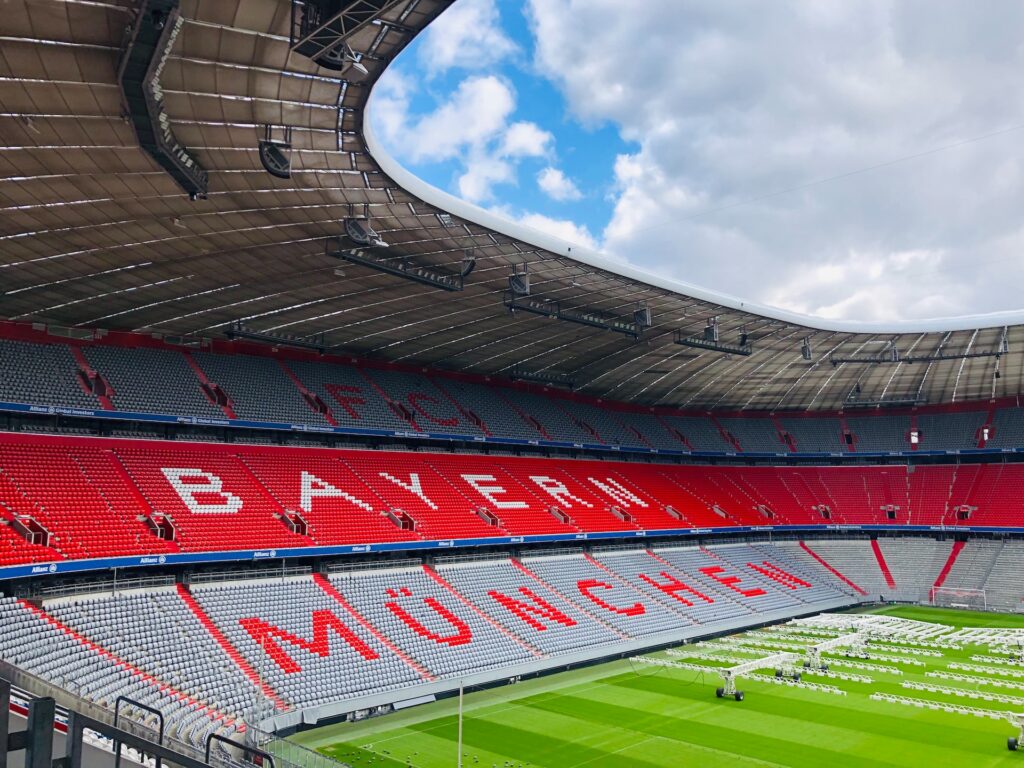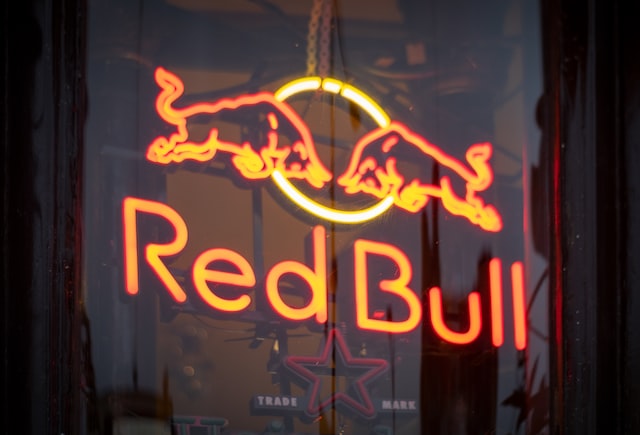How does a club go from fifth-tier nobodies to the Champions League in eight years? Well, to quote the commercial, “Red Bull gives you wings.”
The very existence of RB Leipzig has polarized German soccer. Among fans of the more traditional clubs, the Red Bull-owned outfit is seen as the enemy and everything that is wrong with modern soccer, a soulless entity taking shortcuts.
Others feel RB Leipzig is good for the game. Views like this are often justified by suggesting significant commerciality is required to keep the Bundesliga relevant and competitive on the European stage.
Whichever side of the fence you’re on, you must admit that RB Leipzig is at the forefront of discussions regarding German soccer, and they’re not likely to leave any time soon.
Diversification
Red Bull has been involved with sports for a while. The company was mostly involved with extreme sports, such as cliff diving or flight racing, before RB Leipzig’s inception, as well as sponsorship agreements.

Then an opportunity arose for the Austrian company to the lucrative market of Formula One. Several constructors’ and drivers’ championships are the tangible returns of the substantial investment made, but the increased brand awareness and reputation beyond energy drinks is invaluable.
The Red Bull organization decided to venture into soccer, creating a portfolio of clubs that would brandish their image at every turn. In the company’s native Austria, Red Bull controversially took over and renamed SV Austria Salzburg, which would predictably go on to dominate nationally.
Similarly, Red Bull stepped into MLS. Further outfits have popped up, namely in Brazil and Ghana, but it’s RB Leipzig who has raised the most eyebrows.
The roots of the controversy
German soccer laws meant that the Red Bull organization couldn’t have their company title in the name of their new club. Instead, the new owners called them RasenBallsport Leipzig, shortened to RB Leipzig. RasenBallsport translates into “Lawn Ball Sports,” but it was obvious that this was just a way of circumventing orders of the authorities for marketing purposes.
Then there’s the 50+1 rule. In German soccer, there is a statute prohibiting external investors from owning a majority share of a club. This is in place to ensure that the club, and therefore its fans, have the final say over important operational matters. A testament to democracy and putting the fans first.
Let’s not forget that prior to 1998, all private investment was outlawed in German soccer. They were run as not-for-profits, but it was decided that if German soccer wanted to keep pace with increasingly marketable clubs from elsewhere in Europe, they’d need some investment externally. To remain engaged with fans, however, the DFB (German FA) insisted that all clubs must abide by the new 50+1 rule, which meant that 50% of votes plus one vote would be owned by club members, i.e., fans.
The Red Bull organization devised a ploy to technically comply with the legislation. Typically, the biggest clubs in Germany, like Borussia Dortmund and Bayern Munich, will have well over 100,000 members. Well, when RB Leipzig seized control of SSV Markranstädt, they had only 17 members, partly due to their lower league status at the time.
The vast majority of the initial members worked for Red Bull anyway. That’s not all; RB Leipzig’s membership costs over ten times what Bayern Munich’s costs, making it simply unaffordable to a lot of fans. Even if you could afford it, the club’s executives and members reserve the right to refuse new membership applications without stating why. The whole conduct of their operation was the antithesis of what German soccer was supposed to represent.
Before RB Leipzig, there were instances of exceptions to these rules, such as at Bayer Leverkusen, Wolfsburg, and Hoffenheim. These cases have unique reasons for side-stepping the 50+1 rule, but generally, if you’ve been investing significantly into a club for 20+ years, you can be granted special dispensation to own an increased share.
It feels different with RB Leipzig. Obviously, they hadn’t been investing in SSV Markranstädt for over two decades to get this dispensation – I doubt they’d even heard of them. The core strategic purpose of promoting Red Bull is woven into the club’s everyday message. This didn’t sit right with people. The company didn’t even want to hide it; the DFB made them!
Yes, the ‘Bayer’ in Bayer Leverkusen is parading the pharmaceutical giant, but the club was established at the request of company employees over 100 years ago. Enough time has passed that Bayer Leverkusen has become part of the fabric of German soccer. RB Leipzig is not afforded such generosity from others.
Fans first

Soccer has become the most popular sport on the planet partly because of fan loyalties and stadium atmospheres that are difficult to replicate in other sports.
When the soccer world was stunned by the announcement of the European Super League, the very first thing I did was join the supporters’ trust of the soccer club I support. I knew that this wouldn’t go very far, of course, such is the nature of modern English soccer, but I wanted more engagement with my club.
No German club agreed to sign up for the ESL. Bayern Munich would’ve almost certainly been asked to participate, given their continental pedigree. I’d also wager that Borussia Dortmund was approached too. Both clubs issued statements condemning the league’s proposal.
What may have surprised some people was RB Leipzig delivering a similar statement, given their commercial make-up. They stated that fair competition is crucial to the sport. I’m guessing there are members of clubs who RB Leipzig leapfrogged on the German soccer ladder who laughed at that statement, but Red Bull felt they were the competition that Germany needed.
Whether they bowed to public pressure or otherwise, it proves how ingrained fan consideration is in German soccer.
I believe that most German fans have made peace with the fact that they might not regularly challenge clubs in Spain, England, and Italy without huge financial backing (Bayern Munich excluded). It’s a price worth paying to be part of something bigger, and I understand that logic.
So RB Leipzig manipulating these laws doesn’t sit right. Compared to their German competitors, what did last season’s German Cup victory feel like for RB Leipzig fans? Was it hollow, knowing that it would not have been accomplished without the capital of a multinational corporation propping them up?
Quite frequently, RB Leipzig is given what many believe is a preference to buy star players from Red Bull Salzburg, a de facto feeder club to RB Leipzig. Two clubs owned by the same organization reportedly conspiring to trade players makes a mockery of the transfer market.
To critics, RB Leipzig has used a cheat code to get this far up the soccer pyramid. I’m sure Red Bull thinks this is fair game, but it takes a Bundesliga spot away from a second-tier club that might’ve patiently built its squad and followed the normal procedures.
An argument for competition

Let’s look at the Bundesliga winners from the past ten seasons. Bayern Munich has won every single one of those titles. There is no way this is good for German soccer. Who wants to tune into something so predictable?
Bayern Munich has 31 league titles in total. Borussia Dortmund and Borussia Mönchengladbach are joint-second in that list with five each. Five, that’s it!
These stats beg the question: does Bayern Munich’s monopoly over German soccer vindicate what RB Leipzig is doing? It’s tough to say.
Hypothetically, let’s say this project of dominance that Red Bull has embarked on with Leipzig works and that they dethrone Bayern Munich. Will the average German fan be happy with the dawn of this new era?
First of all, it’s important to point out that, according to fan surveys, people don’t like Bayern Munich. That’s because they’re serial champions. It’s the same reason the New England Patriots were hated for so long in the NFL and why Manchester United was detested for decades in England.
Should RB Leipzig begin to dominate German soccer, then they would be the most hated team, just as Bayern Munich are now. However, the signs indicate that the hatred would be on a totally new level for Die Roten Bullen, given Germany’s proclivity to fan power.
But would Red Bull care? I hardly think so. They feel that this is the natural progression of running a sports club. In the commercial world of modern soccer, how do people expect their club to challenge without such injections of capital?
Take the Premier League, for example. Manchester United and Arsenal were dominant for years. The clubs who’ve rained on their parade include Blackburn Rovers, Chelsea, and Manchester City, all of whom have been accused of “buying the league.”
However, many feel that soccer in England is currently the most competitive because of how many clubs have vast resources. The ‘Big 6’ might seems like an impenetrable and exclusive club to those on the outside looking in, but compare this with France, where we know beyond much doubt who’s going to win the title before a ball is kicked. Except in freak instances where PSG implodes and leaves others with a sliver of hope (e.g., Lille in 2021), there are no challengers because nobody has the means to even run PSG close.
Unfortunately, Ligue 1 is comparable to the Bundesliga, despite all the commendable devotion German clubs show their fans. The 50+1 rule limits external investment and control to a maximum stake of 49% of a club, thus making any threat to Bayern’s supremacy less likely than it would be in other countries.
This is why RB Leipzig is viewed by some as not only a symbol of hope but a catalyst for change in the German system. Can the league persist with the same club winning the title every season? Viewership figures will dwindle because people will become less interested. A real RB Leipzig title charge, and dare I say it, an RB Leipzig title win, could shake up the league’s competitiveness for the better.
Striking a balance
Speaking from my experience there, Leipzig was a pleasant enough city, if not a touch underwhelming. I found myself thinking, given the tumultuous history in this part of Germany and its subsequent economic aftermath (see my article on East vs. West Germany for more on that), why don’t the people of Leipzig deserve a soccer club to be proud of? One that is ambitious and embraces the capitalist nature that western society has been so keen on promoting, particularly in a formerly communist region.
I love tradition when it comes to soccer. In my opinion, the greatest clubs in the world look to retain historical artifacts which tell stories of their past, leaning into what has made them so special over the years. But to say that every club should remain the same forever is ignorant. Times change, and clubs must adapt to new circumstances and environments.
It’s not a binary choice between corporate behemoths monetizing a fan’s every conscious moment and the Jurassic mentality of blindly dismissing contemporary ideas in fear of change. I believe there is room to meet somewhere in the middle. Clubs should celebrate their history while embracing new opportunities.
Bemoan RB Leipzig’s methods all you like; it won’t stop them from striving for success. There is some support for this new kid on the block to stop the league from going stale, however. To me, there appear to be aspects of both the new and old approaches we can utilize
German fans have their villain to unite against, with protests commonplace whenever the more traditional clubs face Die Roten Bullen. As tensions remain, influential voices from both sides of the debate should engage in discussion to see what legislation should be kept or amended in a bid to keep the beautiful game beautiful.

